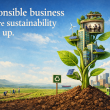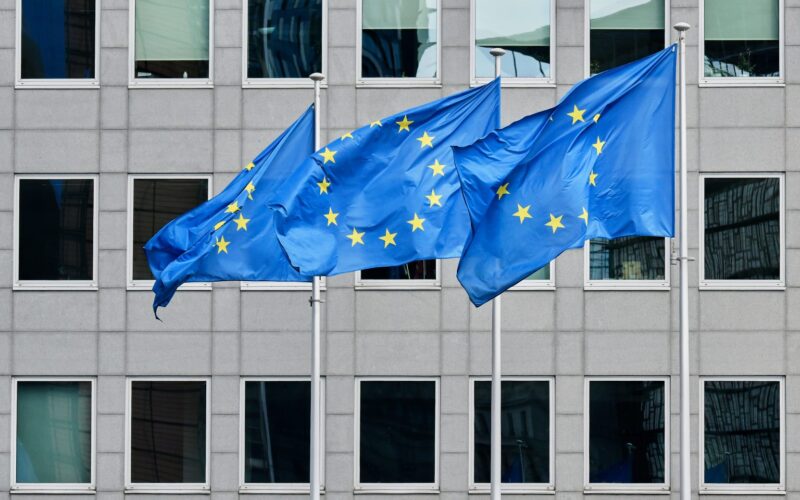Numerous European businesses have pointed out that the stringent ESG regulations in the European Union (EU) are leading to them lagging as compared to their US counterparts.
For Patrick Pouyanne, the CEO of TotalEnergies, the disparity between his company’s stock performance and that of ExxonMobil, the largest US oil and gas producer, is largely attributed to a key acronym: ESG.
ExxonMobil’s aggressive oil and gas strategy has been rewarded by investors, causing its shares to more than double over the past three years. In contrast, Europe’s second-largest oil company, TotalEnergies, faces constraints due to the region’s emphasis on environmental, social, and governance (ESG) standards, which has limited its gains and led Pouyanne to consider the possibility of listing shares in the US.
TotalEnergies is not alone in highlighting how ESG regulations may disadvantage European businesses compared to their US counterparts, potentially impacting the EU’s economic future. Companies like Mercedes-Benz Group and Unilever are voicing concerns. The European Round Table for Industry, representing firms with a combined annual revenue of €2 trillion, argues that stringent regulations are “accelerating loss of competitiveness” and suggests that opportunities may be better outside Europe.
Over the last five years, as Europe developed some of the world’s most ambitious ESG regulations, the US S&P 500 Index has surged more than twice as much as Europe’s Stoxx 600 Index. While factors like Big Tech dominance contribute to higher US valuations, Europe’s ESG requirements have not been beneficial.
European energy companies trade at a 40% discount compared to their US counterparts. If TotalEnergies were valued like a major US crude producer, its market capitalisation could be $108 billion higher, according to Bloomberg.
TotalEnergies has reiterated its CEO’s concerns about Europe’s ESG policies but has declined to comment further. ExxonMobil maintains that its strategy focuses on meeting global energy needs while investing $20 billion by 2027 in areas such as carbon capture and low-emission fuels.
In response to the diverging ESG rules between the US and Europe, some companies are reconsidering their options. For instance, commodities trader Glencore, which recently shelved its plans to exit coal, is now seen as a potential candidate for a US listing. German utility RWE is investing more in the US than at home, and Norwegian battery company FREYR Battery has moved its headquarters to the US.
Dimitri Papalexopoulos, chairman of Greece’s Titan Cement International and the European Round Table’s Committee on Energy Transition & Climate Change, notes that the European approach places energy-intensive industries at a significant competitive disadvantage. “If Europe’s share of these global sectors is lost, others from elsewhere will simply pick it up and prosperity will go there,” he warns.
The number of EU companies in the Fortune Global 500 has declined, Europe’s share of global aluminium production fell to 5% in 2022 from 30% in 2000, and the region has transitioned from being a chemicals exporter to a net importer.
European officials acknowledge the challenges posed by the fast-paced and complex regulations introduced since 2019, but they argue that these measures are crucial to prevent a dual climate and biodiversity crisis. Helena Vines Fiestas, chair of the EU’s Platform on Sustainable Finance and co-chair of the UN’s Taskforce on Net Zero, admits there are short-term challenges but believes the benefits will emerge over time. “We are working really hard on simplifying and making things on the ground work,” she said.
While the US has extensive environmental protection rules, its overall framework is less comprehensive compared to the EU’s, particularly regarding disclosure. The anti-ESG movement in the US is gaining traction, and if former President Donald Trump returns to office, his pro-drilling stance might reduce regulatory burdens. Even Vice President Kamala Harris has moderated her earlier stance on fracking.
As the EU implements more regulations—about 8,000 acts, many related to the environment, were adopted during the European Parliament’s last five-year term—the US is providing incentives. President Joe Biden’s Inflation Reduction Act (IRA) of 2022 offers tax credits and rebates for investments in areas such as electric vehicles (EVs) and solar panels. Goldman Sachs estimates this could spur up to $3.3 trillion in spending, creating a contrast between the US’s incentive-based approach and Europe’s regulatory framework.
Europe’s strategy focuses on “directing companies on what to do,” according to Tal Lomnitzer, a senior investment manager at Janus Henderson Investors. The EU’s Green Deal mandates net zero emissions by 2050, with a 55% reduction by 2030, and plans to raise one trillion euros for the green transition. In response to the IRA, Europe introduced the Green Deal Industrial Plan in 2023, allocating roughly $270 billion from existing EU funds.
However, the appeal of the US programme is drawing investment away, with over 60 European and Asian companies announcing projects in the US after the IRA was passed, according to Bank of America Global Research.
“A lot of corporates have found this scheme very attractive, very efficient, very quick to implement versus Europe, where things are a bit slower sometimes,” said Panos Seretis, head of global sustainability research at Bank of America.
Norwegian company FREYR is focusing its investment in the US rather than its Scandinavian market, and German utility RWE has allocated €20 billion to the US, nearly double its spending plans for Germany.
“The IRA creates a positive and stable investment environment with a simple regulatory framework,” says RWE CEO Markus Krebber.
Unlike the US, where federal tax incentives are available, EU taxation is managed by member states, leading the bloc to rely largely on loans and grants. EU climate directives, such as the Corporate Sustainability Reporting Directive (CSRD), Sustainable Finance Disclosure Regulation (SFDR), and Corporate Sustainability Due Diligence Directive (CSDDD), have created a complex regulatory environment. These directives mandate extensive data reporting and corporate transition plans, increasing compliance costs and spawning a growing industry of ESG-reporting consultants.
The CSRD requires companies to report over 1,000 data points, while the SFDR faces criticism for vague definitions of “sustainability.” The CSDDD introduces potential lawsuits for ESG violations in value chains. Compliance costs are rising, with companies like Heineken and Deutsche Bank’s DWS reporting significant increases in ESG reporting expenses.
Despite challenges, some see the EU’s approach as necessary for addressing climate issues. Johan Floren of Sweden’s AP7 pension fund believes comprehensive information is crucial for market function. Some European financial institutions are reducing their exposure to ESG risks, and there are efforts to globalise sustainability reporting with countries representing nearly 55% of the world’s economy working on adopting International Sustainability Standards Board disclosure requirements.
Some of Europe’s leading financial institutions are shedding their ESG risks. BNP Paribas, the EU’s largest lender by assets, is scaling back its financing of fossil fuels. The €550 billion Stichting PensioensFonds ABP, Europe’s largest pension fund, announced in May that it had divested from liquid assets in oil, gas, and coal, totaling around €10 billion. The fund also plans to divest an additional €4.8 billion in illiquid fossil-fuel assets.
The fund will now focus its investments on companies that are actively transitioning to a sustainable economy and those that do not harm climate or biodiversity, according to Harmen van Wijnen, chairman of ABP’s board of trustees.
Some argue that there is no alternative. After two decades of encouraging markets to address climate change, it is evident that voluntary measures have fallen short, said Simon Braaksma, senior director for sustainability at Royal Philips.
“The people who are crying, maybe they should roll up their sleeves and contribute more to addressing those societal issues,” he said.





















